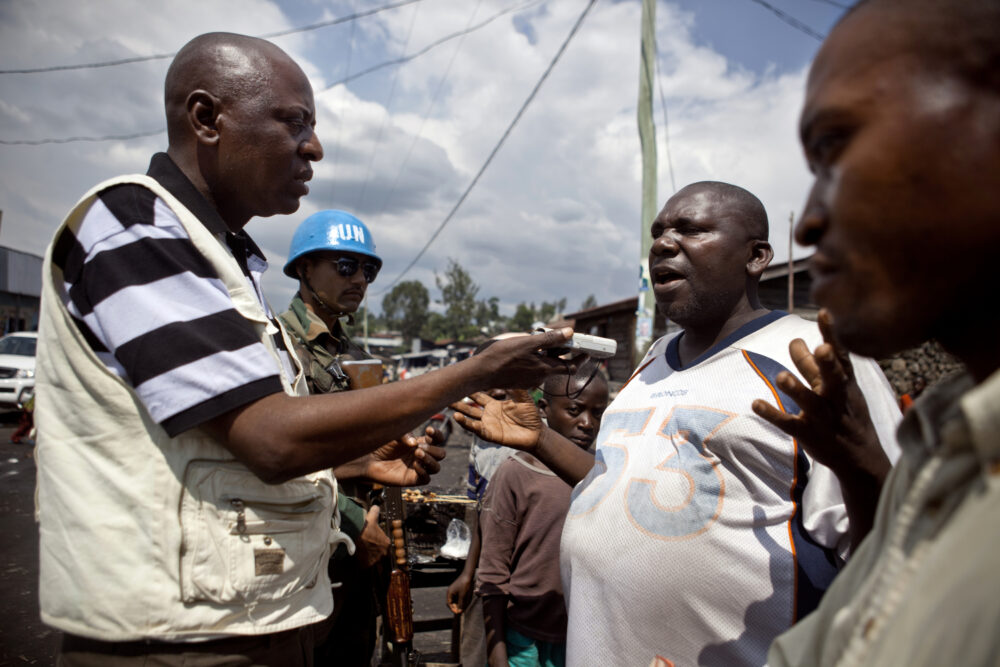Fondation Hirondelle and the Geneva Centre for Security Policy (GCSP), in close consultation with the United Nations, have initiated an inclusive process for gathering lessons learned and best practices on the transition of UN Peace Keeping Operations’ radio stations. A first roundtable was held in Geneva on December 6-7, 2018.
This workshop gathered representatives from the United Nations Department of Peacekeeping Operations (UNDPKO), from the UN Department of Public Information (UNDPI), as well as field-level and national stakeholders, peace operations practitioners, media development partners, academia and think tanks with relevant expertise on the transition issue. Several current and former Fondation Hirondelle’s executives participated in the workshop. They shared our more than 15 years of experience with the United Nations in the setting up and development of UN “peace radios” in conflict and post-conflict settings.
Based on case studies from Sierra Leone, Liberia, Cote d’Ivoire, Kosovo, the Democratic Republic of the Congo and the Central African Republic regarding the transition of UN radio ownership, the group recognized the importance and relevance of radio in providing fact-based, inclusive, balanced and independent information and stressed that this is critical to the strengthening of peace, development and democracy. In particular, the participants recognized the important role Radio Okapi played in supporting free, fair and impartial broadcasting in the DRC and providing a voice to all Congolese to help ensuring inclusive political processes for sustainable and national unity. The group further recognized that the role of a pluralistic and responsible media is key to ensuring fulfillment of Sustainable Development Goal 16 (Target 16.10) and the right to freedom of expression and information.
The deliberations from the Geneva roundtable (you can download the summary on the link above) will inform a larger roundtable to be held in 2019 (tbc). The objective of this process is to develop a more robust road map to address both the policy making and the research needs to support effective strategic communication for long-term peace, inclusive political processes and sustainable development.
To coordinate the contribution of academic researchers on this topic, Fondation Hirondelle initiated a partnership with the Centre for the Freedom of the Media, University of Sheffield, and the MEDAS 21 – Global Media Assistance project at the Erich Brost Institute for International Journalism, TU Dortmund University. Together, the partners recently launched the Research Group on UN Media and Peace Processes (RUNMAPP). RUNMAPP will serve as a research hub to address theoretical and empirical research gaps on UN peacekeeping media.

